Our Story
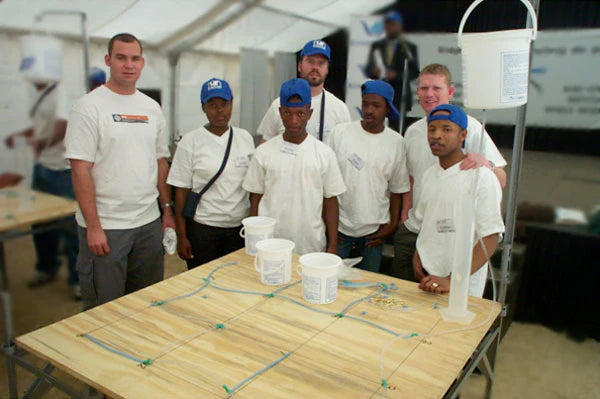
The Beginning • 2002
The idea for the competition originated in 2002 through an assignment by Prof Kobus van Zyl to his third year hydraulic engineering class at the University of Johannesburg.
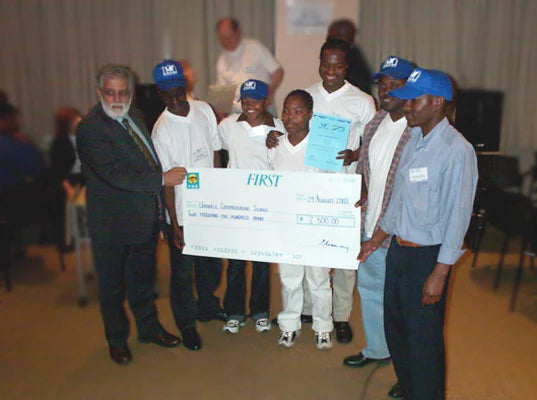
First Winners • 2003
The first school competition was run as part of the centenary celebrations the South African Institution of Civil Engineering (SAICE) and Rand Water (the largest bulk water supplier in South Africa) in 2003. Regional competitions were held across the country and the regional winners took part in the national finals, which was won by Umqhele Comprehensive School from Ivory Park, Midrand.
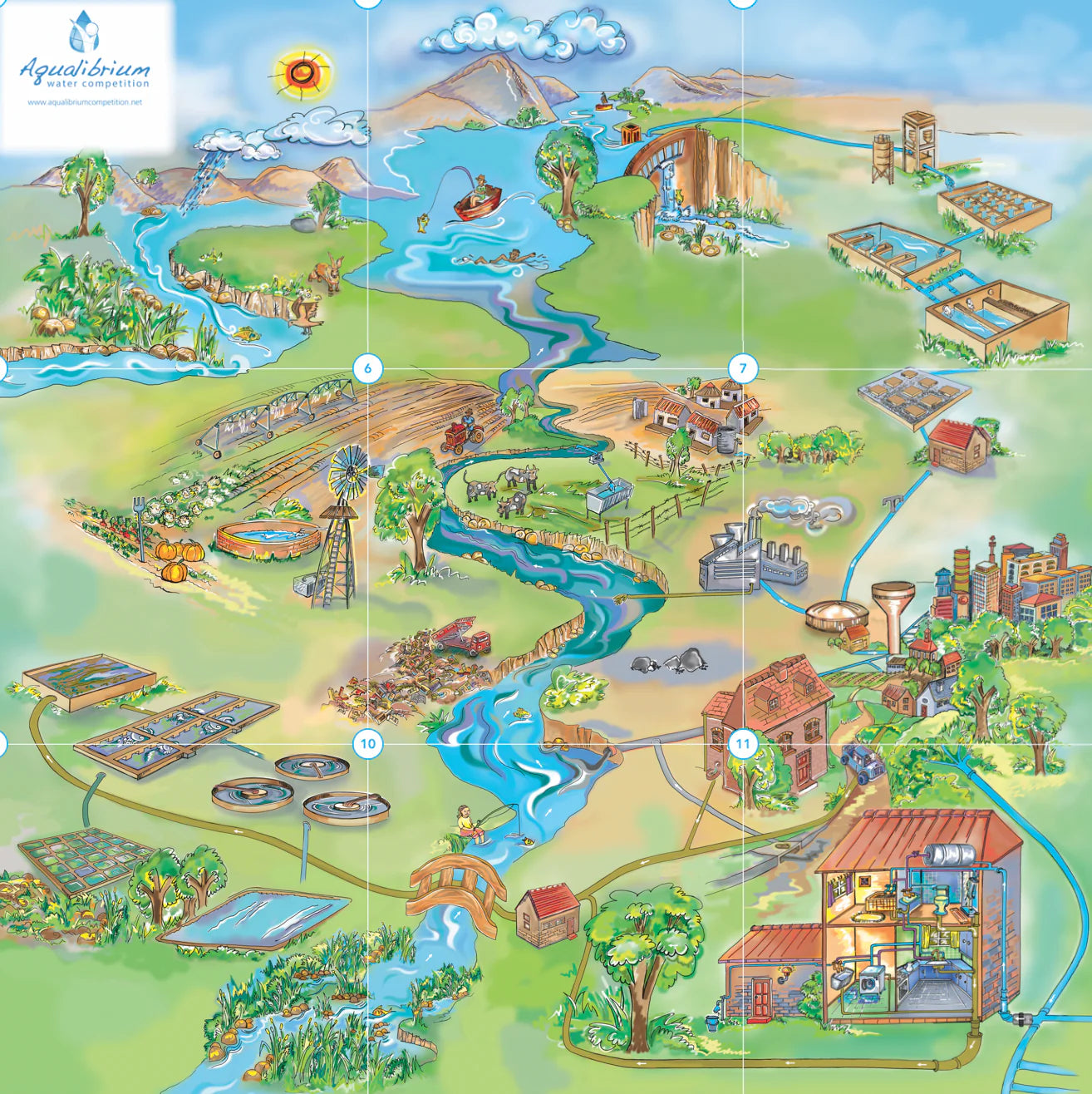
Background Artwork • 2010
Beautiful new background artwork depicting the urban water cycle in a colourful but technically correct way was introduced in2010.

New Aqualibrium Equipment • 2011
The original rudimentary Aqualibrium equipment was replaced with professionally produced specialised components in 2011. This new Aqualibrium kit was introduced at the 12th International Water Distribution Systems Analysis (WDSA) conference at the University of Adelaide, Australia in 2012. The WDSA series of conferences is run under the auspices of the American Society of Civil Engineers (ASCE) and brings together top international experts on water distribution systems to discuss the latest research advances.

First Use for University Teaching • 2014
In 2014 the Aqualibrium challenge was introduced as a modelling and laboratory exercise in the third year Hydraulic Engineering course in the Civil Engineering programme at the University of Cape Town, South Africa. Student response was overwhelmingly positive, with some students describing it as the best practical exercise ever in their studies.
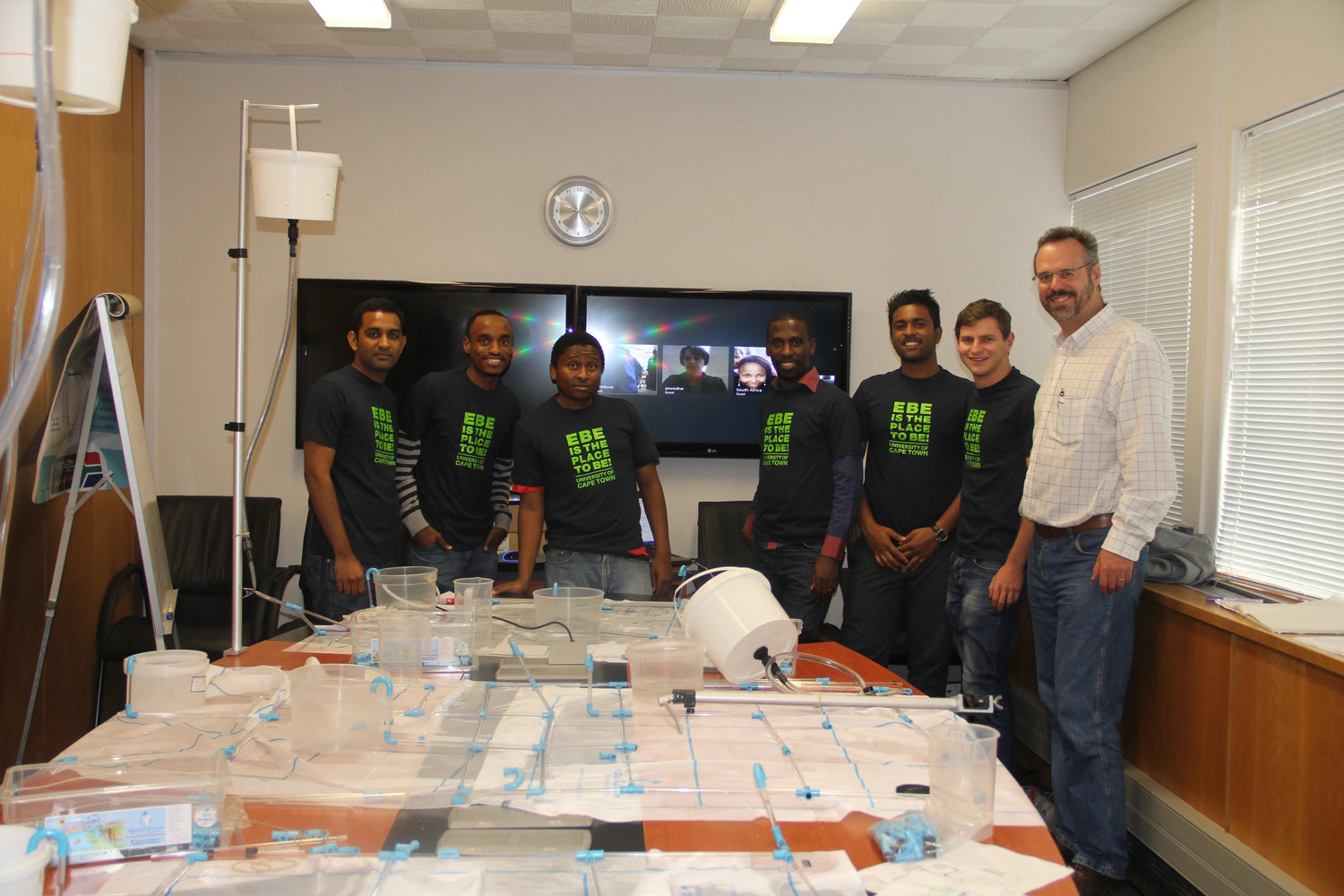
First International Schools Competition • 2015
In 2015 the first international Aqualibrium schools competition was run between four schools teams in Vysoké Myto, Czech Republic and Cape Town, South Africa. The schools were connected through an internet link to a central room where students representing the different groups built the networks according to their instructions.

Aqualibrium Serious Game • 2016
A serious game version of the Aqualibrium challenge was developed in 2016, allowing the challenge to be run through an online platform. Serious games are developed for more than just entertainment. The Aqualibrium serious game uses state of the art hydraulic network simulation software to calculate the flows in the system.
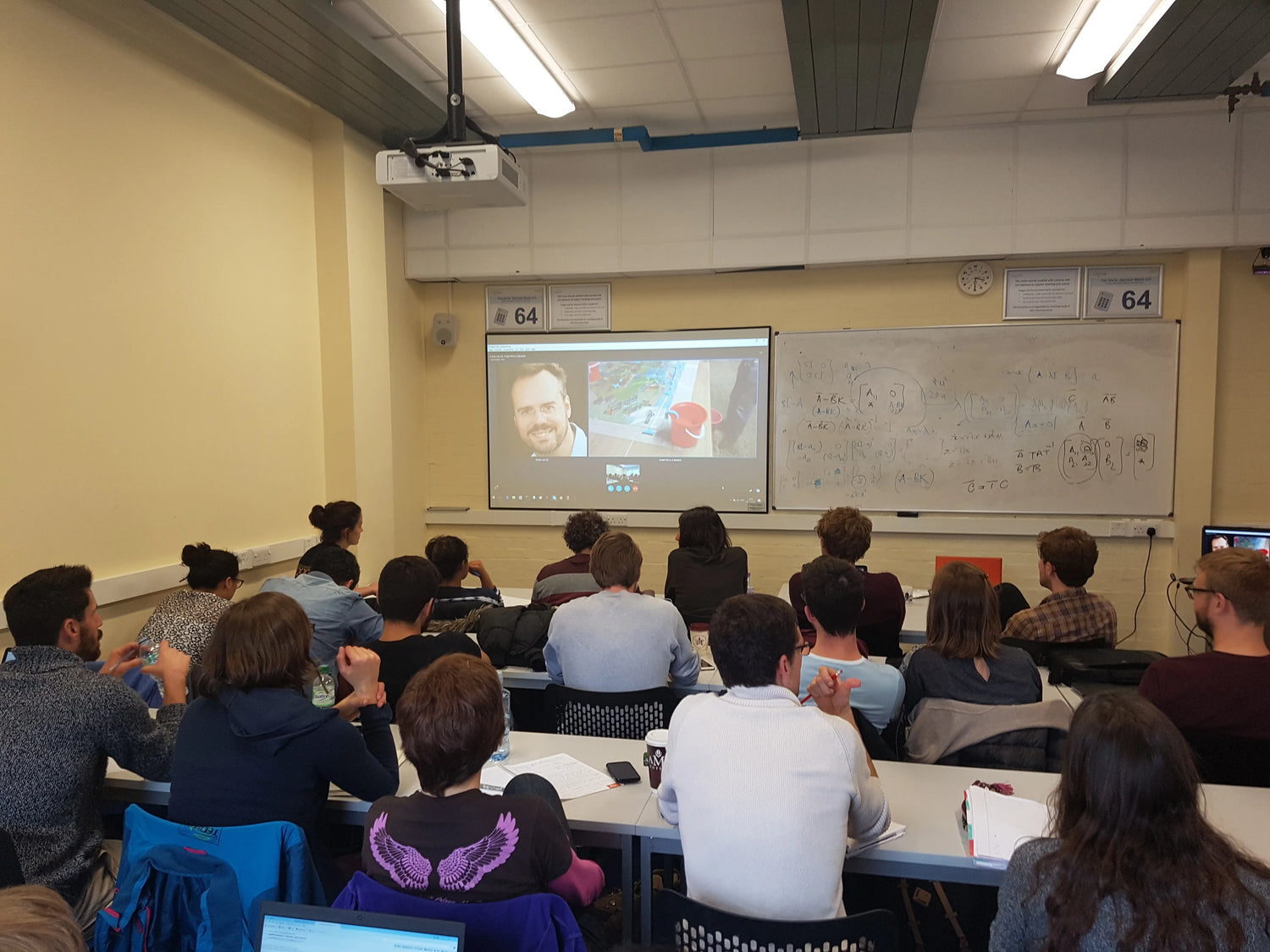
University of Exeter PhD Programme • 2016
The Aqualibrium challenge was used as a teaching tool in the course ECMM124 Hydroinformatics Tools in 2016 as part of the WISE Doctoral Programme at the University of Exeter, UK. The challenge was run through a combination of the Aqualibrium serious game and the physical Aqualibrium challenge using an online link to the University of Cape Town, South Africa.

First Primary School Competition • 2017
The Aqualibrium challenge was introduced as fun primary school teaching tool in 2017. Students loved the experience and and were exited to learn about the ways in which water gets to their homes and pipes transport water.

First International University Challenge • 2022
In 2022 an international student competition was held between engineering students at the University of Auckland, New Zealand and the Federal University of Ceará in Fortaleza, Brazil. The students arranged the competition themselves and connected using an online link to run the challenge and get to know each other.
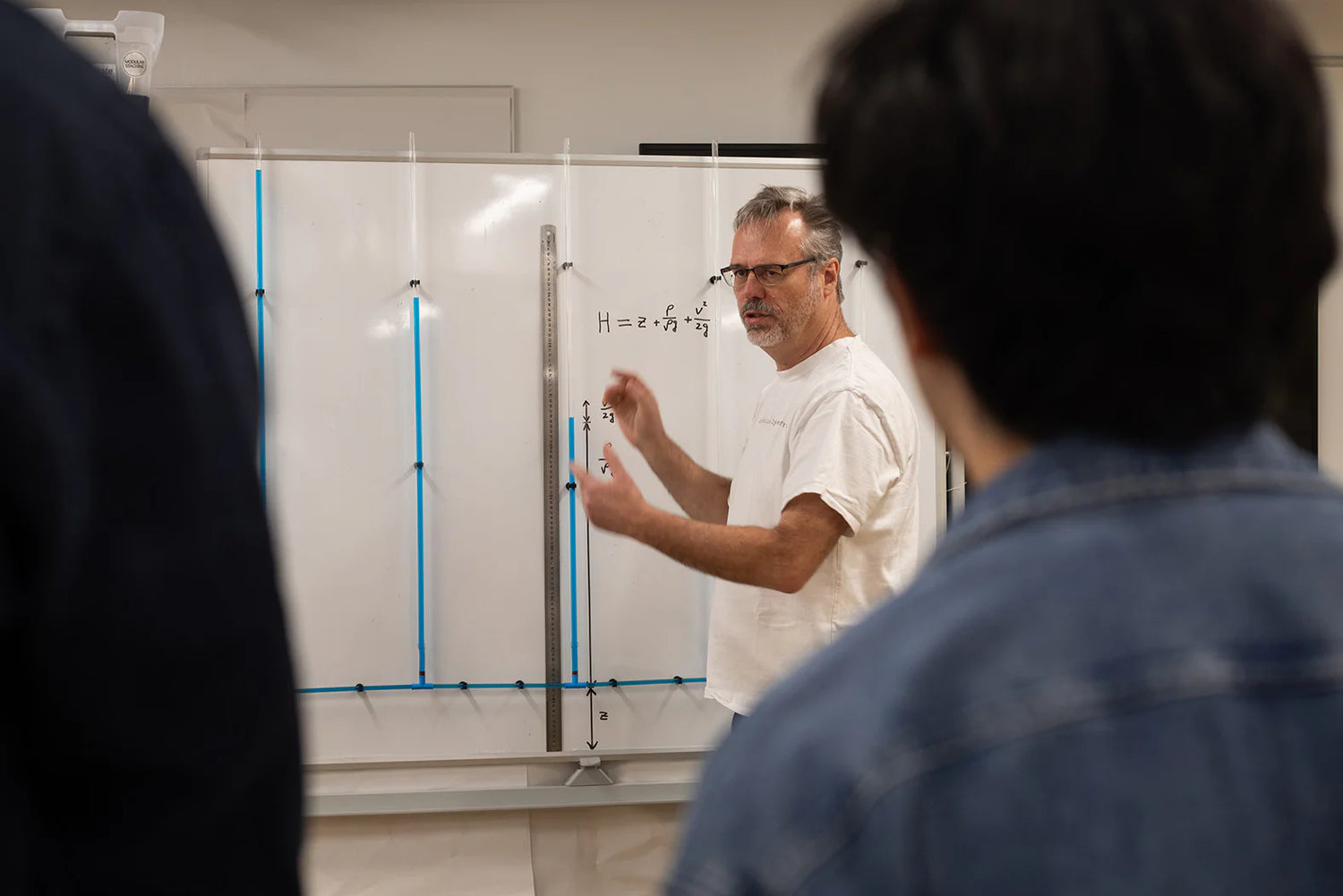
Whiteboard Extension • 2023
The Whiteboard Extension for the Aqualibrium challenge was introduced in2023as part of the second year Fluid Mechanics and Pipe Flow course in the Civil and Environmental Engineering programme at the University of Auckland, New Zealand. The Whiteboard Extension allows Aqualibrium components to be magnetically attached to a standard whiteboard to illustrate the hydraulic behaviour of pipes, components and pumps.

Developer of the Aqualibrium Challenge – Prof. Kobus van Zyl
Kobus was instrumental in creating the Aqualibrium Challenge in 2002 and has been the driver for its development ever since.
He holds a Ph.D. from the University of Exeter in the UK, where he worked on the operational optimisation of water distribution systems using genetic algorithms. He was employed at the Universities of Johannesburg and Cape Town before joining the University of Auckland as the Watercare Chair in Infrastructure in 2019.
Kobus is a Chartered Engineer, an Associate Editor of the ASCE Journal of Water Resources Planning and Management, and a Past-Chair of the ASCE standing committee on Water Distribution Systems Analysis. His research focuses on water distribution systems and icludes hydraulic modelling, the behaviour of leaks in pipes, drainage pipe condition assessment and infrastructure systems.
You can learn more about Kobus and his achievements here.
